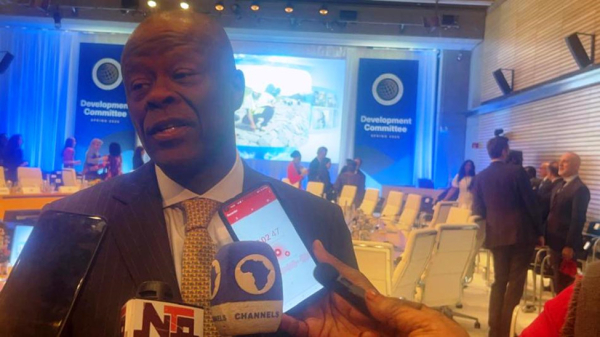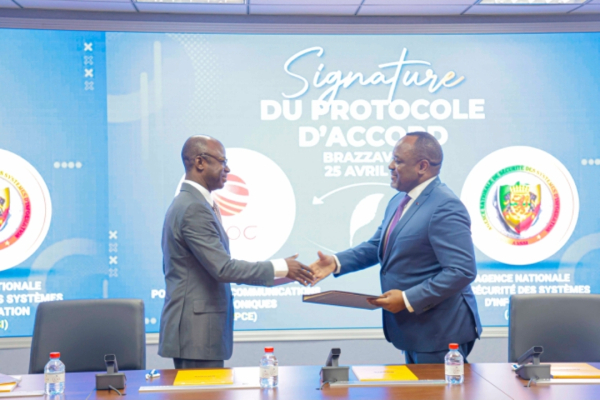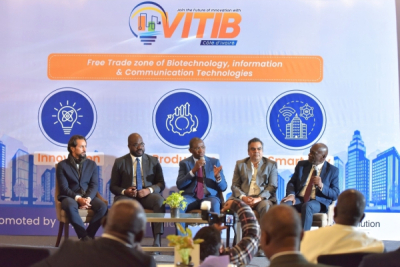The collaboration underscores a shared commitment to tackling unemployment, reducing poverty, and building a digital-ready workforce equipped for the demands of the modern global economy.
The Federal Government is partnering with the World Bank to drive a shared agenda focused on creating high-quality jobs for young Nigerians. The Minister of Finance and Coordinating Minister of the Economy, Mr. Wale Edun, confirmed this during the World Bank/IMF Spring Meetings, according to a statement issued by the Ministry of Information on April 25.
Speaking to journalists in Washington, D.C., Mr. Edun highlighted that Finance Ministers from World Bank member countries had collectively agreed to prioritize employment generation as a key pillar of development. "Creating good-quality jobs is central to addressing poverty and inequality," the Minister said.
A major element of this strategy includes the expansion of Nigeria’s digital infrastructure, ensuring broader access to internet services, data, and fibre-optic networks, to empower young Nigerians to participate actively in the digital economy.
According to the World Bank, Nigeria’s poverty rate climbed to 38.9% in 2023, with approximately 87 million Nigerians living below the poverty line. The bank pointed to sluggish economic growth as one of the key drivers of this worsening poverty situation. However, it also noted that targeted economic reforms could help reverse the trend. The Federal Government’s new partnership with the World Bank - particularly its focus on creating youth jobs using digital tools - directly addresses the urgent need for inclusive economic recovery.
By investing in digital infrastructure and skills development, Nigeria can equip its large youth population with tools to access new economic opportunities, especially in the growing global digital economy. This approach not only has the potential to reduce youth unemployment but also to lift millions out of poverty by stimulating entrepreneurship, remote work, and tech-driven sectors.
Hikmatu Bilali
- Congo’s ARPCE and ANSSI sign cybersecurity cooperation pact
- Protocol includes secure threat data sharing, joint response coordination, and creation of a permanent consultative committee
- Focus on building incident response capacity and developing shared technical protocols
The Congolese Regulatory Agency for Posts and Electronic Communications (ARPCE) and the National Agency for Information Systems Security (ANSSI) signed a memorandum of understanding on Friday, April 25, signaling their intent to collaborate on strengthening the security of national networks and cyberspace.
The agreement aims to improve the handling of cybersecurity incidents and foster information sharing between the two organizations. Specifically, it encompasses the secure exchange of information regarding incidents and emerging threats, the coordination of responses to incidents impacting telecom operators, the establishment of a joint committee for continuous consultation, and the enhancement of technical capabilities alongside the development of joint response protocols.
“This partnership aligns with a larger vision: that of a digital, resilient, and sovereign Congo. It underscores our mutual dedication to building a trustworthy digital space, a prerequisite for the growth of our digital economy,” said Louis-Marc Sakala (photo, right), the Director General of the ARPCE. Underscoring this commitment, the government has allocated $1.3 million to ANSSI’s operations for 2025. In October 2024, the government also conducted a cybersecurity training seminar for judicial and law enforcement agencies.
Currently, the International Telecommunication Union (ITU)'s 2024 Global Cybersecurity Index classifies Congo as a Tier 4 country in terms of cybersecurity. Tier 4 includes “countries with an overall score of at least 20 out of 100, indicating a basic level of commitment to cybersecurity.” The nation demonstrates strengths in its legislative framework and cooperation efforts. However, it needs to bolster its technical measures, organization, and capacity development, with respective scores of 0.3 out of 20, 3.9 out of 20, and 0.72 out of 20.
By Isaac K. Kassouwi,
Editing by Sèna D. B. de Sodji
Nigeria is set to host the West Africa Internet Governance Forum (WAIGF) 2025, a platform where different groups come together to discuss important issues about how the internet is managed.
The event will convene policymakers, stakeholders, youth leaders, and digital enthusiasts from May 19–23 at The Auditorium, Digital Economy Complex (NCC Annex), Mbora, Abuja.
This year’s forum will feature the West Africa Youth IGF, a multi-stakeholder forum, and a parliamentary track, driving discussions on building a resilient, inclusive, and secure digital future for the region.
Applications are now open for the Futuremakers Women in Tech Uganda program, a six-month accelerator supporting women-led, tech-enabled startups.
Powered by the Standard Chartered Foundation and delivered by Future Lab at The Innovation Village, the program offers funding, mentorship, and ecosystem exposure to help startups scale and grow. Participants will gain business development support, access to industry networks, and investment readiness training.
The accelerator targets visionary women entrepreneurs building innovative solutions that contribute toward at least one Sustainable Development Goal (SDG). Their startups must be based in Uganda and employ fewer than 10 people with an annual turnover of less than USD 100,000.
Applications are open till May 30, 2025
- Côte d’Ivoire ratifies bill modernizing digital security framework
- National Assembly unanimously adopted the bill on April 24, 2025
- New framework aims to strengthen cybersecurity and align with international standards
Côte d’Ivoire's National Assembly unanimously approved on Thursday, April 24, a bill ratifying Ordinance No. 2024-950 dated October 30, 2024, concerning the security of its digital space. Presented by Minister of Digital Transition and Digitalization Kalil Konaté, the legislation modernizes the legal framework for electronic transactions and bolsters cybersecurity measures within the country.
A key amendment involves the repeal of Article 50 of Law No. 2013-546, which had previously assigned the Telecommunications/ICT Regulatory Authority (ARTCI) responsibility for network security, the auditing and certification of information systems, and the issuance of electronic certificates. These responsibilities are now transferred to the National Agency for Information Systems Security (ANSSI), a specialized cybersecurity body.
Concurrently, Articles 3 and 17 of Ordinance No. 2017-500, pertaining to electronic exchanges between citizens and administrations, are amended to replace references to ARTCI with "the competent body," which now designates ANSSI.
ANSSI's mandate now includes safeguarding the State's networks and information systems, as well as critical infrastructure. It will also coordinate responses to cybersecurity incidents, conduct security audits, certify information systems, and issue electronic certificates to entities operating in Côte d’Ivoire. Furthermore, ANSSI is tasked with promoting cybersecurity best practices among government agencies and economic operators.
This transfer of responsibilities is intended to enhance the protection of Côte d’Ivoire's digital realm by entrusting it to a dedicated and technically proficient agency. It also aims to improve the interconnectedness of public information systems within a framework that ensures transparency, technological neutrality, and security. The ratification of this ordinance sets the stage for the implementation of strengthened digital public policies within a more cohesive legal environment aligned with international cybersecurity standards.
Samira Njoya
Since its inception in 2004, VITIB has aimed to position Ivory Coast as a key player in technological innovation. Now, it's intensifying efforts to attract strategic investments and evolve into a leading technology hub in West Africa.
The Information Technology and Biotechnology Village (VITIB), situated in Grand-Bassam, Côte d’Ivoire, is intensifying its drive to secure $311 million (180 billion CFA francs) to fund its development blueprint through 2028. The initiative aims to transform its special economic zone into a comprehensive technology hub, spurring innovation and economic expansion across West Africa.
To this end, a VITIB delegation recently travelled to India for discussions with investors and prospective collaborators. Conversations focused on investment prospects within the park, infrastructure development, modalities for industrial and financial alliances, and the incorporation of cutting-edge technological solutions. Among the entities engaged were AXL, OKAYA Group, and representatives from the Export-Import Bank of India.
"India occupies a significant chapter in VITIB's history. Shortly after its inception, Côte d’Ivoire’s first technology park benefited from crucial financial backing through a loan from Exim Bank of India, which facilitated the construction of essential infrastructure. As a tribute to this partnership, a section of the technology park was named after Mahatma Gandhi," VITIB stated.
Spanning more than 600 hectares, VITIB is organized into three distinct zones: manufacturing, administrative, and residential. It is home to pioneering enterprises in the fields of information technology and biotechnology. It provides a favorable tax climate, featuring a five-year tax holiday followed by a lowered rate, alongside contemporary infrastructure such as data centers, fiber-optic connectivity, and a single-window service streamlining business establishment.
Its strategic roadmap aims to generate 40,000 skilled employment opportunities and attract $1.6 billion (1,000 billion CFA francs) in foreign direct investment. VITIB thereby aspires to establish Côte d’Ivoire as West Africa’s technological vanguard by cultivating an environment that fosters innovation and competitiveness.
This promotional tour in India forms part of a wider campaign to raise the profile of the technology park, draw new participants from the technology and biotechnology sectors, and investigate novel financing avenues. Leveraging its established relationship with India, VITIB seeks to inject fresh impetus into its project and solidify Grand-Bassam's position as a pivotal innovation hub in Africa.
By Samira Njoya,
Editing by Sèna D. B. de Sodji
Dans un contexte où la méconnaissance du droit freine souvent l’accès à la justice, cette solution numérique se veut un pont entre les citoyens et le système judiciaire, offrant des contenus fiables, accessibles et actualisés. Elle se positionne comme un outil d’inclusion juridique.
Beninese authorities unveiled a mobile application, dubbed "Justice.bj," designed to ease access to justice services this week. The initiative aims to simplify administrative processes and bolster the availability of legal information for citizens.
The application is now available for download on both iOS and Android platforms. According to the Google Play Store, it has already garnered over a thousand downloads. "Justice.bj" offers a range of features, including a comprehensive legal database encompassing laws, decrees, codes, and procedures currently in effect in Benin. Users can also access a directory of the nation's courts and find practical guidance on various administrative and judicial procedures. Notably, the app incorporates a scanning tool that allows users to verify the authenticity of official documents through QR codes.
"Justice.bj" is intended for a broad audience, including the general public, legal professionals, law students, and those working within the justice sector. Its interface allows users to consult legal codes, understand their rights, and identify the appropriate court for a legal matter without immediate external assistance. The application also prioritizes legal education for the public by providing explanatory articles that aim to demystify legal terminology.
However, the effectiveness of the application hinges on the regular updating of its legal texts and guides. Failure to do so could lead to the dissemination of outdated or inaccurate information. Furthermore, while efforts have been made to simplify legal language, the inherent technical nature of law means that some content may still prove challenging for individuals without legal training, potentially limiting their independent understanding of their rights.
Moreover, while "Justice.bj" seeks to democratize access to the law, its utility is contingent upon owning a smartphone and having internet connectivity. This could exclude a segment of the Beninese population, particularly those in rural areas or older individuals. DataReportal figures indicate that at the beginning of 2025, Benin had 4.71 million internet users, representing an internet penetration rate of 32.2%.
By Adoni Conrad Quenum,
Editing by Feriol Bewa
- RASCOM and Egypt’s Nilesat sign MoU to boost Africa’s space sector
- Agreement signed April 23 aims to enhance satellite capacity use, training, and innovation
- Parties to collaborate on infrastructure, platforms, and marketing of satellite services
- A dedicated marketing services contract was also concluded alongside the MoU
The Regional African Satellite Communications Organization (RASCOM) signed a memorandum of understanding on Wednesday, April 23, with Nilesat, the Egyptian national satellite operator. The two parties thus demonstrate their willingness to collaborate further to accelerate the development of the African space sector.
The main areas of collaboration focus on the commercialization of satellite capacities, training, innovation, and research. Both parties commit to pooling their expertise, platforms, applications, and satellite infrastructures. A marketing services contract was also concluded between them.
“This partnership marks a strategic convergence of our common objectives: to stimulate innovation, promote knowledge sharing, and advance satellite services in the region. Together, we aim to provide enhanced connectivity and promote skills development in the space sector,” said Hesham Lotfy Sallam, Commercial Director at Nilesat.
The establishment of this partnership comes shortly after the launch of the African Space Agency (AfSA), intended to structure the continent’s space initiatives. The agency is dedicated to the collection, analysis, and sharing of spatial data, in service of the continent’s sustainable development. This cooperative dynamic illustrates the growing momentum of the African space sector, with a multiplication of national initiatives. Last March, Botswana launched BOTSAT-1, its first satellite. Seventeen other countries on the continent have also already put satellites into orbit. Egypt leads the list with 14 spacecraft, followed by South Africa (13) and Nigeria (7).
Africa seeks to strengthen its position in the global space market, whose growth is accelerating. According to data recently cited by the Senegalese government, the global market is expected to exceed 737 billion dollars in the next decade. Space in Africa indicates that the value of the African market was estimated at 22.6 billion dollars in 2024.
Beyond these economic prospects, space technologies offer strategic advances in precision agriculture, natural resource management, environmental monitoring, and telecommunications. For this latter area, the Global System for Mobile Communications Association (GSMA) estimates that satellites have the potential to provide universal coverage in Africa, where a large part of the population is still deprived of mobile phone and Internet services.
Isaac K. Kassouwi
- State Minister Nguilin met World Bank officials in Washington on April 24
- Discussions focused on overhauling public services, e-learning, and civil registry digitization
- World Bank signaled readiness to expand support beyond e-procurement to full-service digital platforms
Chad is accelerating its digital transformation efforts and is counting on enhanced support from the World Bank to modernize its public services. On the sidelines of the Spring Meetings in Washington, State Minister Tahir Hamid Nguilin met on Thursday, April 24, with Michel Rogy, the World Bank’s Regional Director for Digital Development, and Jana Kunicova, Sector Director for West and Central Africa, to discuss the way forward.
During the meeting, the Chadian official stressed the urgent need to overhaul financial administrations, improve connectivity, and leverage digital technologies to make government services more accessible, efficient, and transparent. The government has identified key priorities, including the digitization of civil registry records, the digital transformation of school curricula, the expansion of e-learning, and the promotion of local innovation.
These goals are part of the Digital Transformation Support Project, already funded by the World Bank. Launched six months ago, the project has reached a disbursement rate of 8%, which the institution has welcomed as a promising sign. The World Bank reiterated its willingness to go beyond e-procurement support by helping establish an integrated digital platform for public services.
Still, accelerating progress will require substantial technical assistance. Chad faces several hurdles: patchy internet connectivity, a shortage of digital skills, and fragile infrastructure. Enhanced backing from the World Bank could help foster a structured, inclusive, and sustainable digital ecosystem—one designed to improve access to public services and strengthen governance.
According to the ICT Development Index 2024 published by the International Telecommunication Union, only 12.2% of Chadians currently have internet access. The country faces a stark digital divide between urban and rural areas. Additionally, Chad scores just 0.1194 out of 1 on the digital infrastructure development index—one of the lowest ratings globally. Against this backdrop, the World Bank’s support could play a critical role in building a coherent and resilient digital ecosystem that serves citizens and enhances effective governance.
By Samira Njoya,
Editing by Sèna D. B. de Sodji
In Nigeria, where accessing healthcare presents a significant hurdle, the platform DoktorConnect is leveraging technology to revolutionize the system. Its goals include reducing patient wait times at hospitals and alleviating the strain on often-overcrowded public health facilities.
DoktorConnect, a Nigerian-developed e-health solution, enables users to consult certified doctors via smartphone through messaging, voice, or video calls. The startup, with bases in Ikeja, Nigeria, and El Paso, United States, was founded in 2020 and has been led by Joseph Olowe since February 2021.
We "benchmarks your genomics against your wellness result to design an evidence-based lifestyle management plan for you. A digital platform that facilitates consultations with licensed doctors, both virtually and in person, using smart medical IoT devices for real-time vital signs tracking and remote patient monitoring," the healthtech says.
Its solution features a mobile application available on iOS and Android, where it has been downloaded over 10,000 times, according to the Google Play Store. Users create an account to access services ranging from medical teleconsultations to prescription delivery, including patient records monitoring.
The app also provides access to specialists such as gynecologists, pediatricians, and cardiologists, along with mental health counseling and personalized chronic disease management. Additional features include the ability to receive electronic prescriptions, access reliable medical information, and schedule medication reminders.
DoktorConnect aims to broaden healthcare access, particularly in urban and semi-urban areas. The platform operates on either a subscription or a pay-per-consultation basis. As part of Africa's expanding healthtech sector, DoktorConnect exemplifies how innovation can address critical needs in a region where challenges related to access, cost, and quality of care are widespread.
By Adoni Conrad Quenum,
Editing by Feriol Bewa
More...
- Rwanda signed a trilateral memorandum of understanding with C4IR UAE and C4IR Malaysia during Dubai AI Week 2025.
- The partnership focuses on ethical, inclusive, and sustainable approaches to AI development.
- Key areas include governance frameworks, skills development, and technological innovation.
On Wednesday, April 23, during Dubai AI Week 2025, Rwanda inked a three-way memorandum of understanding with the Centres for the Fourth Industrial Revolution (C4IR) of the United Arab Emirates and Malaysia. Ambassador John Mirenge, representing the Rwandan government, finalized the agreement, signaling a significant stride in international collaboration on artificial intelligence.
This partnership aims to build on the momentum generated by Rwanda's AI fellowship program and foster deeper collaboration among the three nations. It will support joint efforts in areas such as governance frameworks, skills development, and technological innovation, with a focus on ethical, inclusive, and sustainable methodologies.
The agreement comes after Kigali hosted the inaugural Global Summit on Artificial Intelligence in Africa. That event, which convened experts, government officials, and private sector partners, underscored Rwanda's aspirations in AI and its increasing prominence in global discussions concerning technology governance.
Since 2022, Rwanda has operated its own Centre for the Fourth Industrial Revolution, established in partnership with the World Economic Forum. This center spearheads AI projects and develops appropriate regulatory structures. An ambitious initiative to create 50 artificial intelligence applications over four years was launched this month, aiming to accelerate the digital transformation of key sectors including healthcare, education, agriculture, finance, and public administration. This program aligns with the national digital development strategy and the country's Vision 2050.
This closer relationship could also enable Rwanda to leverage the advanced experience of the United Arab Emirates, which has already integrated AI into numerous government services, and Malaysia’s expertise in applying technological innovation to industry. For Kigali, this represents a strategic opportunity to expedite the growth of its own artificial intelligence ecosystem while solidifying its standing on the global technology stage.
By Samira Njoya,
Editing by Sèna D. B. de Sodji
- Morocco announced an international call for tenders to digitize the national civil registry.
- The digitization effort covers more than 38 million records across 1,821 civil registry offices.
- Phase one involves converting ~27 million paper documents (some dating to 1915) via manual entry and verification.
- Phase two targets ~11 million already-digitized records for auditing, indexing, and securing.
Morocco is launching an international call for tenders to select service providers for a national civil registry digitization project, the Directorate General of Local Authorities announced. The initiative, with a budget exceeding 194 million dirhams, or roughly $20.8 million, aims to overhaul the management of civil registry records and bolster the digitization of public services nationwide. Bids will be opened on May 29 at the Ministry of the Interior in Rabat.
"This project aims to establish a centralized and secure database, connecting all civil registry offices to a unified, high-performance information system," the Interior Ministry stated. "This will enable real-time data exchange with other public institutions, accelerating procedures, improving service quality, and strengthening the digital transformation of Moroccan administration."
The digitization effort will encompass over 38 million records spread across 1,821 civil registry offices throughout the country. It will proceed in two phases. The initial phase involves approximately 27 million paper documents, some dating back to 1915. These documents will undergo meticulous digitization, manual data entry, and rigorous verification to ensure data accuracy. The second phase will cover more than 11 million already-digitized documents, which will be audited, indexed, and secured to guarantee their integrity and traceability.
Selected service providers will be required to adhere to stringent cybersecurity standards and ensure the faithful preservation of the original documents. Payment for services will be phased, allowing for close monitoring of contractual obligations.
The project also includes the development of an integrated information system designed to centralize data while ensuring its seamless connection with other public services. This system will streamline administrative processes, reduce processing times, and ensure consistent service quality across the country.
Furthermore, an electronic portal will be created for citizens, enabling them to conduct various procedures remotely, including requests for birth certificates, family record books, and the registration of births and deaths. This portal is intended to enhance digital inclusion while alleviating pressure on physical administrative counters.
This project aligns with Morocco's national "Digital Morocco 2030" strategy, spearheaded by the Ministry of Digital Transition and Administrative Reform. Through this initiative, the Kingdom seeks to solidify its ambition to become a leading regional player in the digital sphere, leveraging technological innovation to serve its citizens and modernize public administration. The country has already made strides in this direction, digitizing 600 public services, including 300 for citizens, 200 for businesses, and 100 for government agencies.
By Samira Njoya,
Editing by Sèna D. B. de Sodji
Nigeria will host the AfCFTA Hackathon 2025, which will take place at the Landmark Event Centre in Lagos, from May 1–3, 2025. The event will bring together developers, entrepreneurs, and innovators from across Africa to build tech solutions for the continent’s digital trade challenges.
Themed “Empowering Youth for Africa’s Future Trade,” the event aims to drive innovation in areas such as e-commerce, digital payments, logistics, and digital identity. Participants will work on ideas that enhance cross-border trade under the African Continental Free Trade Area (AfCFTA).
The hackathon supports AfCFTA’s broader goals of economic integration and trade facilitation, with winning ideas potentially piloted for real-world application.
Tanmeyah, a subsidiary of EFG Holding and a leader in microfinance, has partnered with AMAN Holding, the fintech arm of Raya Holding, to enhance digital financial services for customers across Egypt.
The agreement, announced April 22, will allow Tanmeyah customers to receive financing and make payments digitally, including through AMAN’s retail network, available seven days a week, removing the need for branch visits or limited service hours.
The partnership will advance Egypt’s digital transformation and financial inclusion agenda by offering simplified, tech-enabled solutions to individuals and microenterprises.















